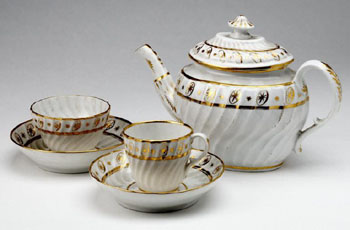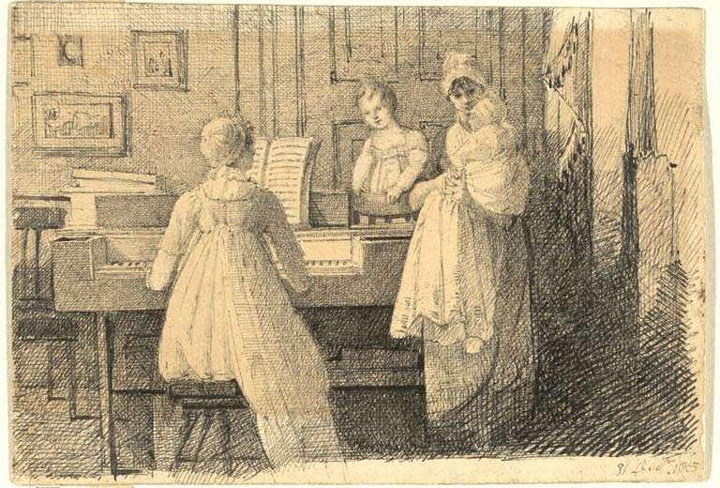By
the end of the eighteenth century there had developed the idea of separate
spheres. Men met other men in public places such as coffee houses. Women
entertained women friends within the house, particularly in ceremonies
developed around the new drink of tea. Tea drinking was common in Edinburgh
by 1720, and spread quickly through the country despite attempts by the
government, particularly in the 1740s, to discourage it. By the 1790s
was general throughout Scotland in a majority of households. Not only
was tea itself expensive, but the serving of it involved tea pots, china
tea services, tea trays, tea tables, tea caddies, silver sugar tongs,
all new and expensive items.
Tea set made
at the Stockbridge Pottery, Edinburgh, c.1806-17.
©
SCRAN/National Museums of Scotland

Other indoor occupations included reading
aloud, and playing cards. At the beginning of the eighteenth century,
private instrumental music making was in fashion, and inventories often
include flutes, virginals and spinets. These instruments then went out
of fashion, and singing became the main form of music making in the
home. Towards the end of the eighteenth century the pianoforte came
into fashion, replacing the dining table as the most expensive item
of furniture aspired to by the middle class consumer.

Drawing by John Harden (1772-1847)
of family music-making in the New Town of Edinburgh.
©
SCRAN/National Library of Scotland